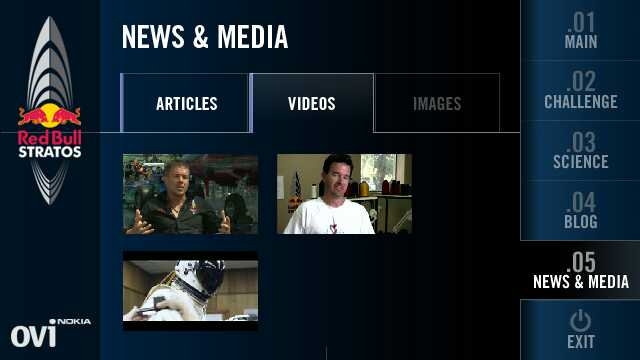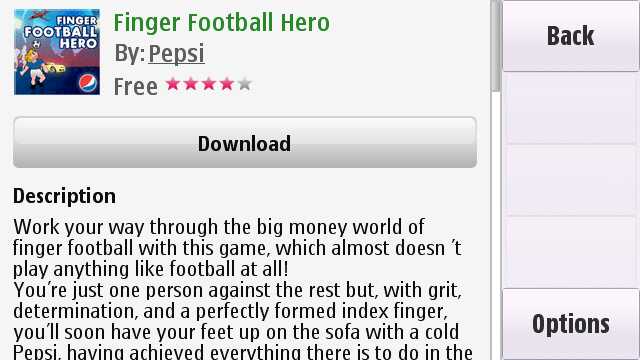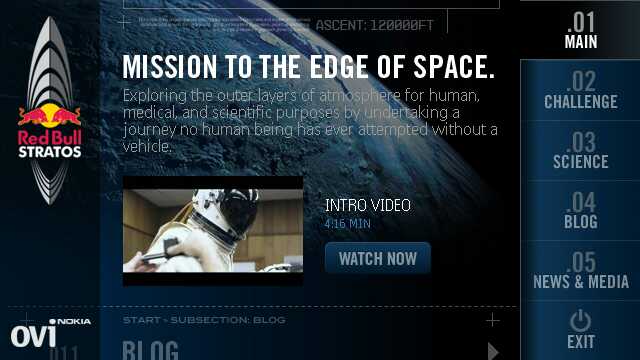At a number of press conferences and events, Nokia have talked about the Smartphone being the “next screen” in people’s lives – a screen that they take with them no matter where they are to view their [digital] world on. Sure there’s a bit of hardware behind all that, but the essence is there.
Of course, whenever there’s a screen there is eventually advertising. The mobile world is still in its infancy in regards to getting out a commercial word to the end-users – most efforts are around the same 'display advert and click' paradigm that swept the desk-bound computers over the last ten years, but the growth of mobile applications has led to marketing departments finding something a little bit different.
And that is the branded application.

It could be a game that has some subtle message around it to promote a product (such as the Pepsi Finger Football application for the bubbly drink and the World Cup); to capture the mood from another campaign (Barclaycard’s Rollercoaster series of games); or to promote something that your company is already using to promote their name.
Red Bull’s “Stratos” application is a good example of this. CEO Dietrich Mateschitz uses the Red Bull name (much like Richard Branson uses the Virgin name) for a number of endeavours – some of them profitable, some of them more of a marketing exercise. But all of them lead back to selling the company name. The Stratos Project is a free fall parachuting attempt from 120,000 feet and is clearly a marketing exercise (yes there will be lots of science done, but I bet it sells a lot cans of pop as well)!

The application itself acts as a central info portal on your phone, allowing you to read the latest news and articles about the project, be directed towards video and multimedia, and generally stay in touch with the project in a rather whizzy interface designed by the Red Bull marketing team.
So if you think that this sounds remarkably like what you can do with a few mouse clicks using Nokia's Ovi Store Application Wizard, you’d be right. Which is what is so wonderful about the app wizard – you don't now need to have an expensive design team to build a similar application for your own company or project.
It’s a win for Nokia (you have the option of charging for App Wizards, so the Finns get their cut), and it’s a win for the companies ad their marketing budget, and users have more good quality applications available. Plus the increased use of the App Store will benefit them and the eco system in the medium and long term.

What is interesting to me is that the smartphone has become not only the end point of an advertising campaign (rather than the traditional web banner that gets clicks and traffic to a site, which is the successful end of many web-based campaigns), but an important service station on the information highway – with the owners of the stores and portals as the gatekeepers.
The Ovi Music Store (or any online music store to be honest) is a great example. Each week a handful of tracks (or albums) can be advertised in the promotional sections. These drive traffic towards the product. In a sense they are traditional advertisements, asking people to find out more about a product and then buying it.
But for applications, that initial click and then getting the content on the phone is not the end of the process – it continues throughout the life of the application on the handset. The value of an app is far in excess of a 79p music track, it builds up the product and the emotional connection with users even more than a nice banner or a spot in the carousel of 'recommended' adverts at the top of the store.
The smartphone ecosystem is continuing to evolve, and Nokia are taking their time to bring new ideas and methods into the mobile space. Helping advertisers find new ways of bringing value to themselves and the users is just one of them.
-- Ewan Spence, June 2010.
